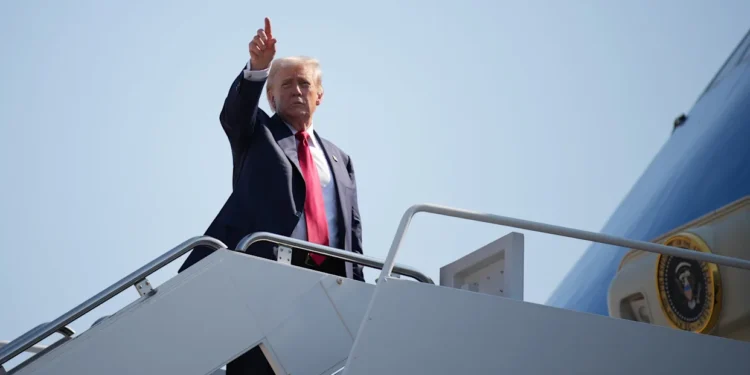A U.S. Secret Service agent is under internal investigation following an incident in which he allegedly attempted to have his wife board a government support aircraft during logistical preparations for President Donald Trump’s recent trip to Scotland. The incident, which occurred at Joint Base Andrews in Maryland last week, has raised questions about adherence to protocol within an agency that plays a central role in safeguarding the president during international travel.
According to federal officials, the agent’s wife traveled from Dallas to the base, where she received a security briefing and was allowed into the visitor lounge before supervisors intervened. The plan, as investigators now allege, was for her to join a support flight that carried staff and equipment but no protectees. Despite the absence of high-profile passengers, agency policy clearly bars unauthorized individuals from boarding operational aircraft.
Supervisors reportedly issued multiple warnings to the agent before takeoff, emphasizing that the attempt would violate strict access controls. The woman was ultimately prevented from boarding and did not leave U.S. soil. “This action was caught and stopped in time,” a Secret Service spokesperson confirmed. “The attempt had no impact on our protective mission overseas, and the matter is now subject to a personnel investigation.”
The agency has not disclosed the identity of the agent involved, nor has it stated whether disciplinary measures are forthcoming. Officials have also declined to say whether the incident is being treated as an isolated breach or as a symptom of broader lapses in procedural oversight.
President Trump, speaking to reporters after returning from the Scotland trip, offered a brief comment on the matter. “Wouldn’t you think it might be a little dangerous?” he said, adding that Secret Service Director Sean M. Curran would “take care of it.”
While the attempted breach may seem minor on the surface, experts say such actions can carry outsized consequences in the context of national security. Presidential travel, particularly overseas, requires seamless coordination, and even non-lethal breaches in protocol can expose larger cracks in internal accountability systems. For an agency where trust and discipline are essential, this episode underscores the persistent need for vigilance, even in seemingly routine situations.
Though the plane in question did not carry the president, the symbolic weight of the event, along with the potential risks introduced by circumventing flight access rules, has triggered renewed scrutiny within federal law enforcement circles.







